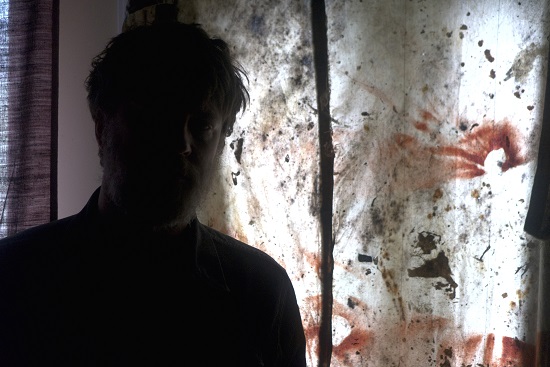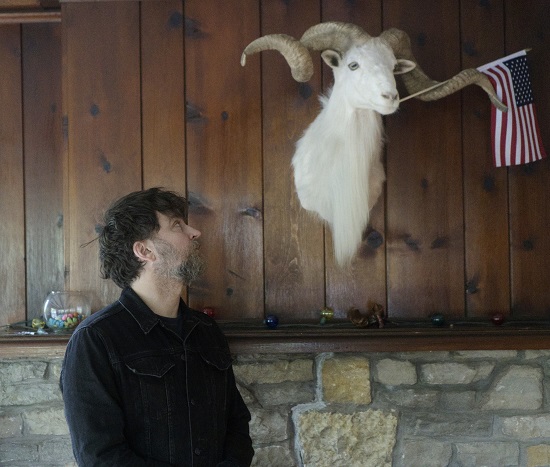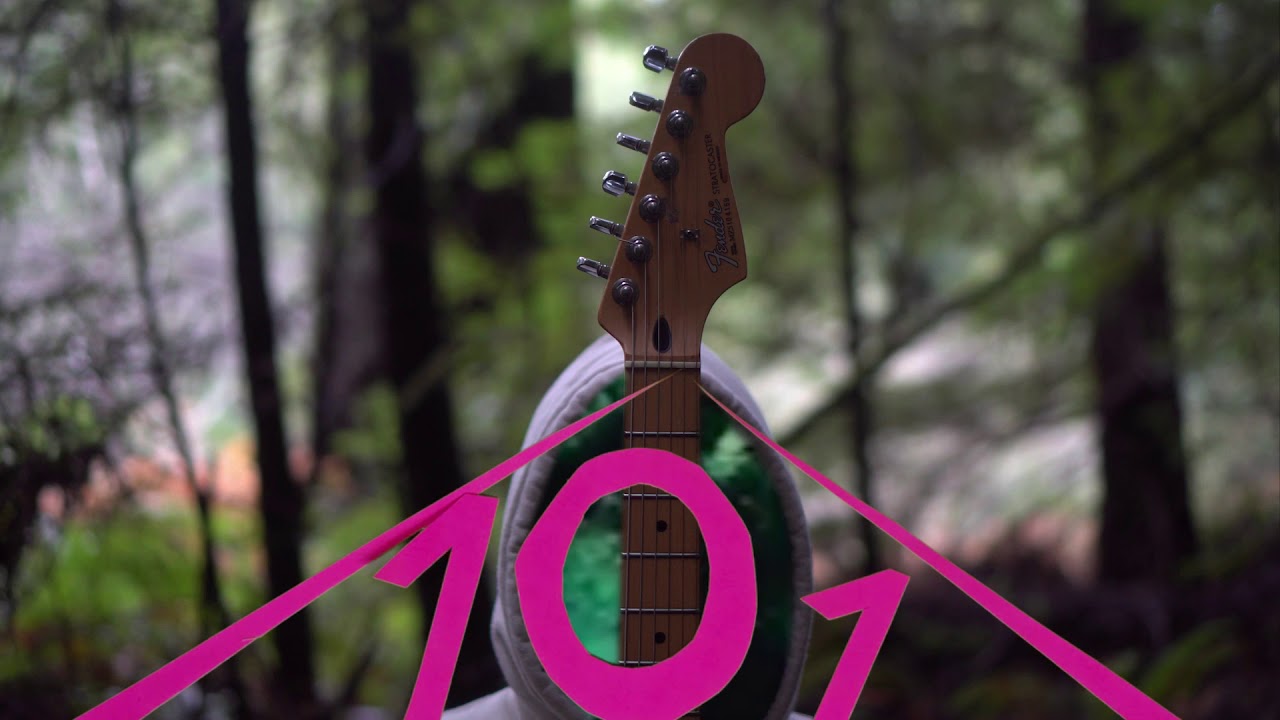Ben Chasny has been picking up where he left off…
My interest in stargazing started pretty early, back when I was a kid. I lived in a very rural area where there was no light pollution at all. There was only a couple of channels on the TV and there wasn’t a whole lot to do except look at the stars. I had a backyard telescope, it was really cheap and I couldn’t see a lot of stuff, but I could spot the moons of Jupiter, or at least I thought they were the moons of Jupiter… I could always find Orion’s nebula too, it looked like a kind of smudgy star. I also had a subscription to an astronomy magazine that would let you know what’s going on in the night sky, I wish I could remember the name of it. Every month it would say ‘here’s what’s going on with the stars, and here’s what to do.’ It’s an interesting thing, stargazing, because any time they talk about something that’s going on in the sky there’s always a relational aspect, something that’s moving with something else that’s moving, or not moving. We imagine these celestial bodies meeting in the sky…
I hadn’t really been into stargazing for the last 20 years or so because I kept living in various cities where I couldn’t really see the stars, but recently I moved back to my old home of Humboldt County, North California, where I grew up. I never thought I’d go back, but families get older, so I thought I’d come back and hang out a bit. I have a deeper appreciation for my home now, especially as I can just walk out of my door and see the stars again. It’s one of my favourite things about moving here. I certainly don’t think of stargazing as some sort of pastoral rejection of the modern or something though. That can get into some pretty shady areas.
If an article comes my way about astrophysics, I’ll definitely read it, and there’s a couple of people on YouTube I watch to see what’s going on. Recently one of the Voyager satellites discovered that there’s an awesome ring of plasma surrounding the solar system, a ring of fire where the temperature jumps up really high. That’s really cool!

One of the rarest and most spectacular celestial events might happen in our lifetimes, but that doesn’t mean he wants to see it…
Apparently, Betelgeuse could explode into a supernova at any moment, which would be a fantastic show in the night sky. A lot of scientists are so excited about it, saying ‘I hope the star explodes in my lifetime!’ But I think it’s a little sad because if it does explode then we lose the shoulder of Orion! Orion has been a really strong constellation for like, thousands and thousands of years, and if it explodes you’ll just get these really weak Instagram posts for a couple of weeks then it’ll go into the data banks and we’re left with a lacking constellation. So, I’m on the side where I hope it doesn’t explode. Who knows how long humanity even has left on earth? It’d be nice for future generations to have a full Orion. Let another star explode!
Orion being one of the brightest constellations makes it a lot of people’s favourites, and he was my favourite as a kid. I used to dream of taking photos of the stars but it was impossible, but now with technology, it’s become possible for me, so one of the first things I started doing when I moved back to Humbolt and once I got a camera was to start taking pictures of Orion. I don’t want to sound like a cosmic hippy, but I’m reconnecting with Orion; he’s kind of a buddy when you’re a kid and have no friends in the country!
Celestial bodies are all over Six Organs’ new album, Companion Rises
A picture I took of Orion is on the cover of Companion Rises, and the title Companion Rises is a reference to the star Sirius being a companion star of Orion. I did a record in 2012 called Ascent, which was about a specific story but similar themes. I had this dream of a spacecraft that was being constructed outside of Jupiter. I don’t know where I was, maybe on another spacecraft or one of the moons, but the spacecraft looked like a huge lobster. I never really went back to that space theme except for now, with me being concerned with the stars again, with more appreciation of the constellations and Orion. Sound-wise it’s very different this time, I was trying to do acoustic music and it’s a lot folkier, but lyric-wise it has a lot to do with the stars again.
One song on Companion Rises, ‘The Scout Is Here’, is influenced by the darker side of the new age, and the darker side of the New Age. Do you remember that elongated asteroid ʻOumuamua? It was the first interstellar object we detected in our Solar System; the name translates from Hawaiian as ‘Scout’. When it flew through there was a scientist in Boston who said it was probably an alien spacecraft, which caused a lot of controversy. I thought that was fascinating, so I decided to write a song from the perspective of a UFO cult, welcoming the asteroid in. And I also thought, just in case it is an alien spacecraft, maybe they won’t want to kill me because I wrote a song for them…
There’s always something more to see
I’ve never seen a full solar eclipse but I’ve seen full lunar eclipses when it gets kind of dark, then kind of pink. Nick Drake style. But to see everything go completely black would be amazing. Sometimes you read about these really magnificent meteor showers, that really do look like a shower, I think it’d be great to witness something like that in my lifetime. I’ve seen where meteors come in every minute or two at best, those are really exciting, but you read these reports, maybe they’re exaggerating, but they say that the whole sky was just falling. That would be cool.
Something I hadn’t thought about until recently is the idea of modern constellations that are just the brightest stars you can still see in the city. A lot of constellations have lots of small stars, but now because there’s so much light pollution it’s like modernity has had to create new geometric shapes, stuff like the Summer Triangle which was always a favourite of mine – Aquila, Cygnus and Lyra. I’ve just recently found out about the Winter Hexagon too.

There is more than one way to look at the stars
From the simple act of going out and looking at the stars, you can go a couple of ways. One way is to be interested in astronomy and astrophysics and outer space, or you could go the other way and just look at it in a more inspired, poetic way. It seems very entertaining to me to just watch the stars. One of the dangers of stargazing is the over-pedantic stargazer who feels like he has to describe everything, telling you ‘this star is that, and this star is that.’ Maybe you just want to enjoy the movement of the stars, but unfortunately I think it lends itself to mansplaining. That’s the danger of stargazing!
There’s a guy called Gaston Bachelard that I talked about a lot when it came to my last record because it was really influenced by him. He has a funny thing about the constellations. He’s really against them as a concept, because he says there’s these imposed forms. He says the night sky should be a Rorschach Test for humanity – go out there and make your own constellations, which is also really cool. We do the same thing with clouds, because they’re always different and changing. I mention that because there’s this thing about stargazing, ‘you’ve got to know the constellations, do you know them?!’ and that goes back to that pedantic thing I talked about before. I think the best thing is to just go out there. If you can see some stars, just to go out to look at them.
Six Organs Of Admittance’s new album Companion Rises is out via Drag City on February 21



